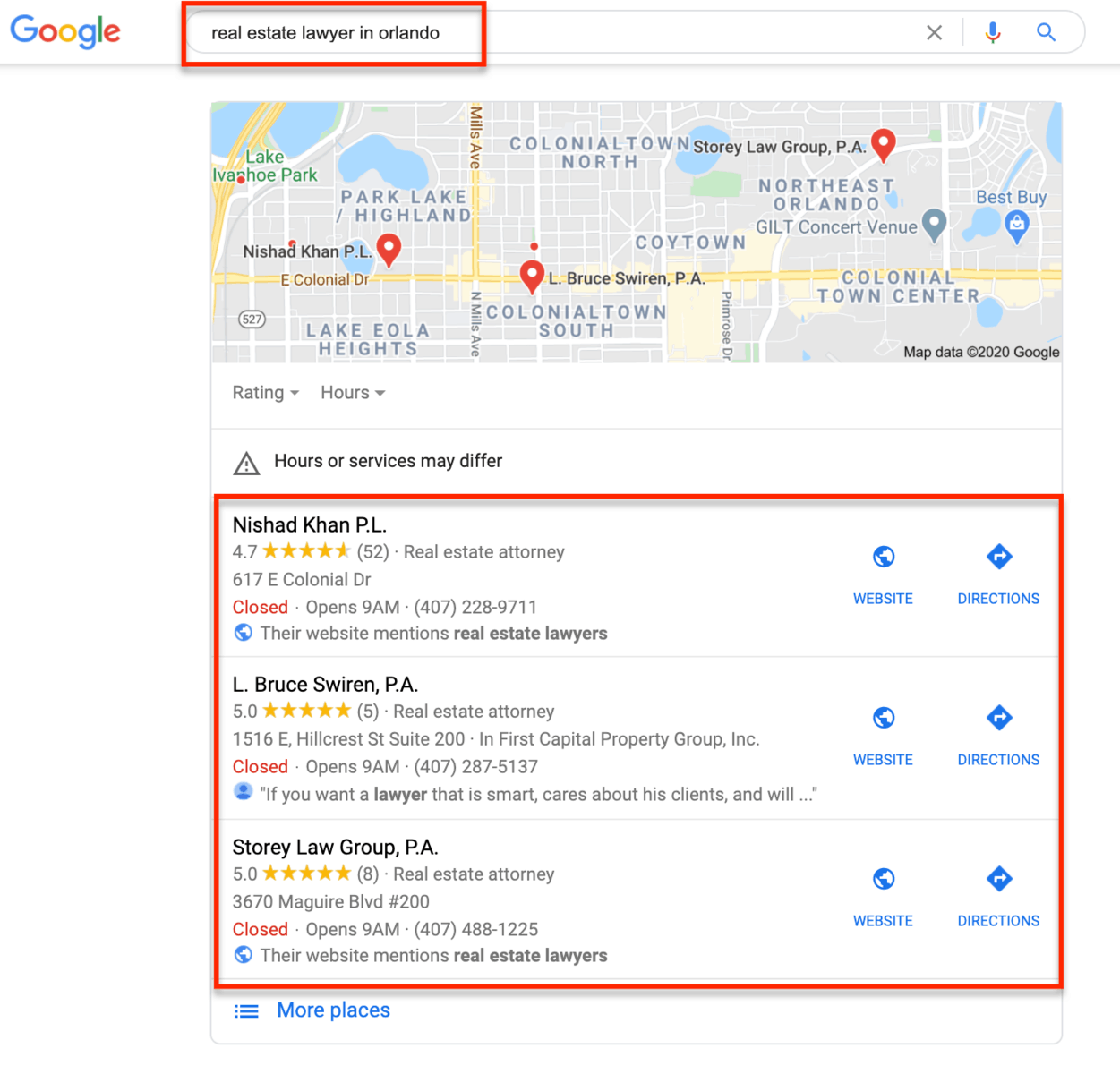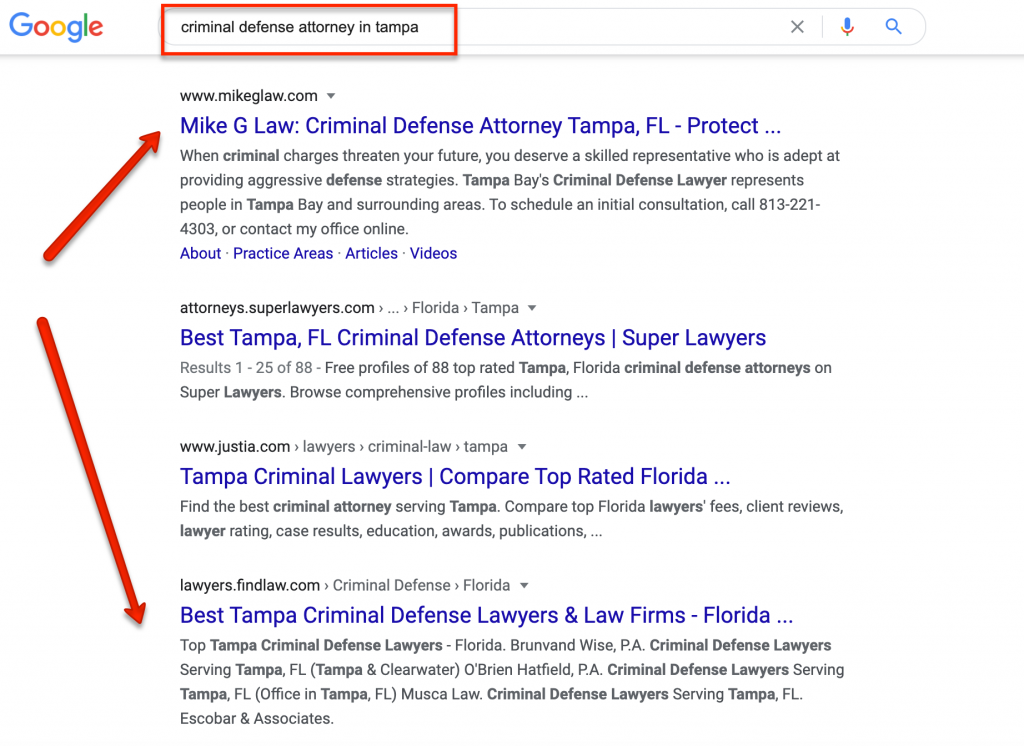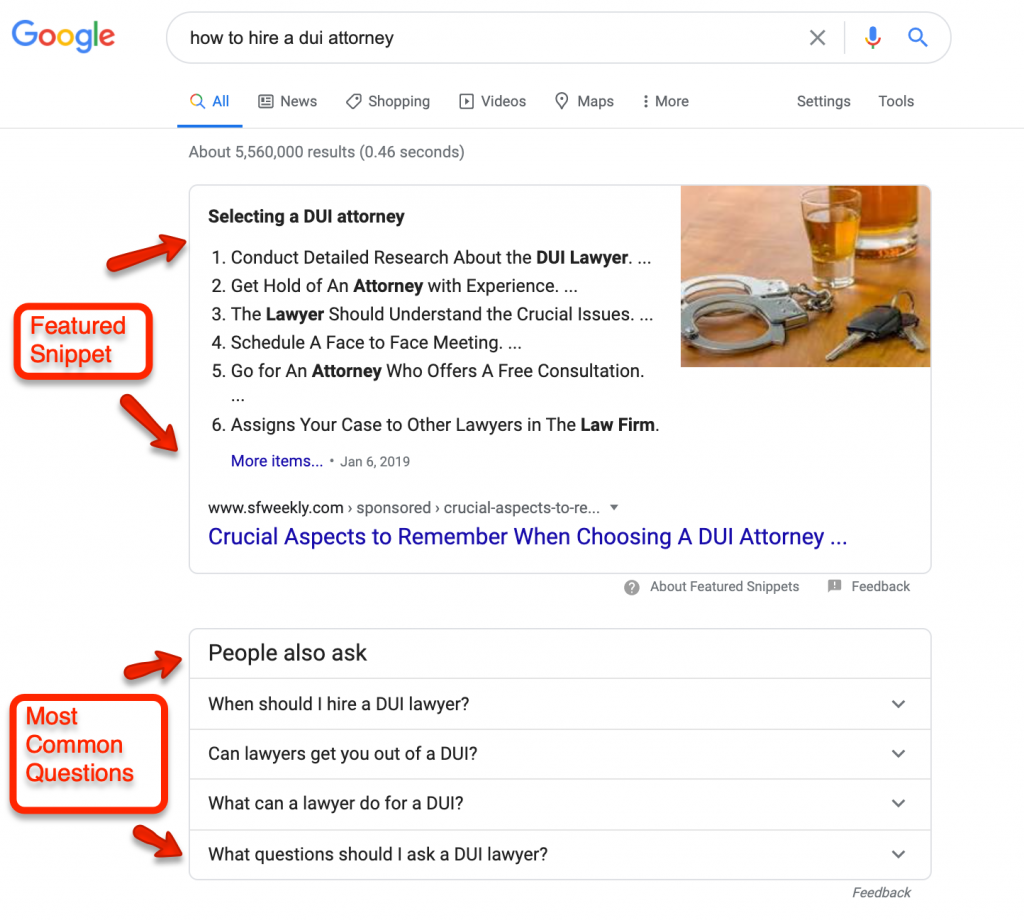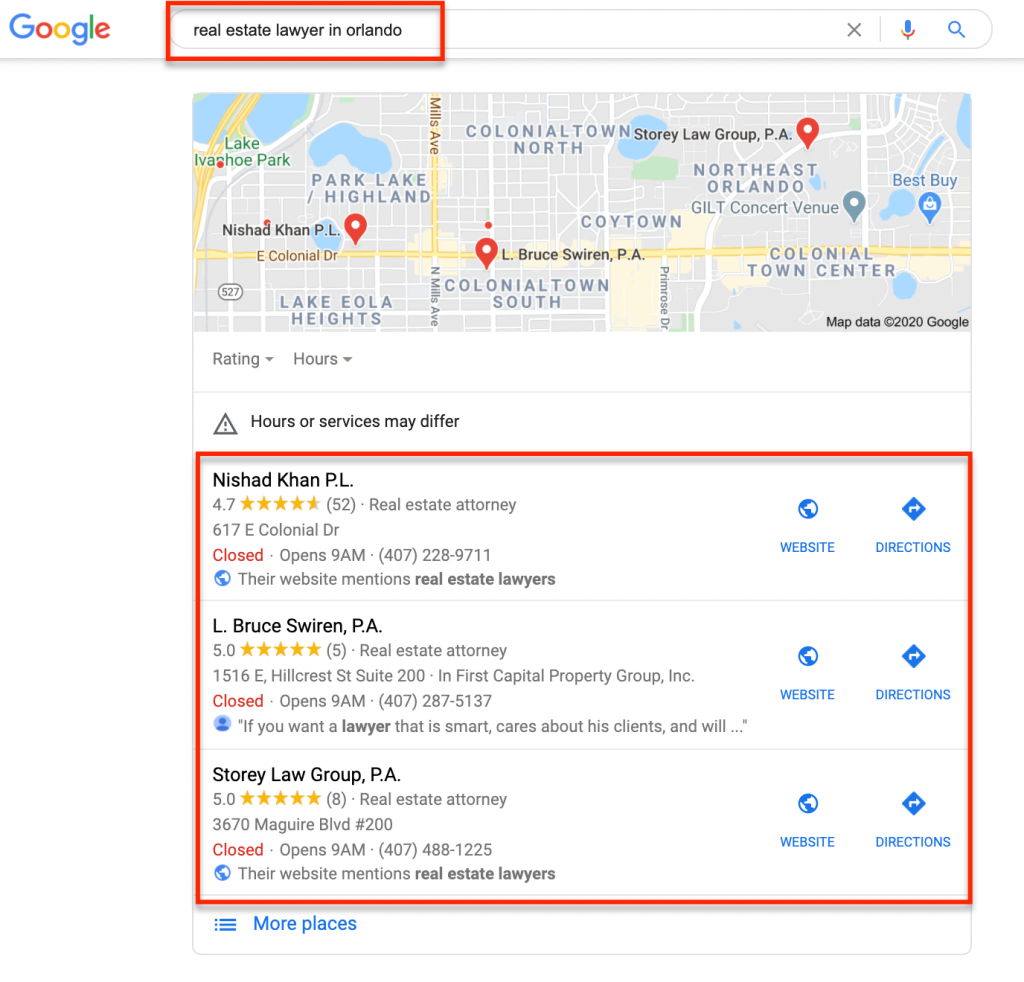Getting your website to rank on the first page of Google for important keywords is one of the smartest marketing tactics you can do for your law firm.
As Ricky Bobby famously said in the movie Talladega Nights, “If you’re not first, you’re last!”
Fortunately, ranking on the first page of Google isn’t as difficult as some SEO professionals make it out to be. It just takes a little time, consistent effort, and the right team in place – like TitleTap ?- to help you get there.
In this post, we’ll discuss why you should be aiming for a first-page ranking, key ranking factors that Google’s algorithm uses, and tips to improve your current ranking.
How does Google’s algorithm work?
Did you know there are over 1.7 billion websites online?
With new websites being added every minute and existing sites being updated, you need a way to organize, search, and make sense of all of this data.
That’s where Google’s search algorithm comes in. It is designed to crawl through everything on its search index and share the most useful results almost instantly. The goal is to share the most relevant information for each user’s search query.
For example, if someone got a DUI in Tampa and searches for “criminal defense attorney in Tampa,” then Google will display a list of law firms in the searcher’s area. The most relevant, trustworthy web pages will show up higher in the search results.
Google is constantly updating its algorithms to share the most up-to-date, quality, and relevant search results to users. The algorithms evolve to give better results and weed out websites trying to trick users into visiting sites without any value for the searcher. This is why it’s important to focus on producing quality content as opposed to trying to trick the search engines into sharing your web page.
Pro Tip: The first page is also home to paid Google Ads, but for this post, we’ll be focusing on organic rankings. Organic search results appear naturally and without cost to the ranking website because they’re relevant to the user’s search terms.
Why is it important to be on the first page of Google?
Simply put, ranking on the first page results in more traffic and a higher clickthrough rate, or CTA. This means more new leads and hopefully more new clients for your firm.
In fact, Google’s search results are even advanced enough to include expandable related questions, knowledge panels, local search results. People rely on Google for big and little things. From finding a simple recipe to finding out how to begin divorce proceedings.
So, if we go back to our DUI attorney example, here are some examples of snippets that Google show within the search results.
This is why it’s important for businesses to not just have a web presence, but to focus on their rankings for relevant search terms.
Let’s take another example.
If you specialize in family law in San Antonio, you could try to rank for “divorce lawyer in San Antonio” or “San Antonio child support attorney.” No matter which search terms you decide to focus on, it’s important to rank on the first page for them.
The more relevant, high search intent keywords you rank for, the more clicks you’ll get to your website.
In addition to a higher CTR, web pages that show up on the first page of Google see the following benefits:
- Better search visibility
- Increased engagement
- Higher web traffic
- More new leads (and clients!)
- Improved trust and credibility
What percentage of Google searches go past the first page?
It’s important for your link to appear on the first page when potential clients are searching for terms related to your business. But what happens if your website falls on page two of Google? Is it all that bad?
Sure, you may get the occasional person that decides to dig deeper and evaluate all of their options, but the majority will not check page two results.
In fact, search traffic drops by 140% once you get past the 10th position, or the bottom of page one, to the top of page two.
This means if your website appears after page one, you’ll be missing out on TONS of search traffic, Now that you understand the importance of being on the first page of Google, here’s how you can get your website to rank higher.
What are some key ranking factors?
Before you can optimize or tailor your website to show up on page one, you need to know what the key ranking factors are.
According to Google, here are the key factors their algorithm looks for when selecting search results for any query:
- Search intent
- Relevance of web pages
- Content quality
- Usability of web pages
- Context and settings
Google is constantly weeding out spammy results and inferior web pages in their rankings.
As a search engine, their goal is to provide the most relevant content for people searching for things. Keyword stuffing, where articles are packed with keywords and little to no value to the user, is a thing of the past. Google algorithms are smart and no longer reward these types of shady tactics.
Instead, focus on providing quality content that answers the user’s search query. Here are some additional tips to help you rank on the first page.
How do I get my website to rank higher?
Getting the top organic ranking on Google might not happen overnight. It takes consistency and focusing on quality over quantity.
Here are a few ways to improve your search rankings:
Create a free Google My Business Listing
This free tool is essentially a business directory. It uses Google Maps and search results to help local customers find you. Be sure to fill out all of your business’s information for maximum visibility. Keep your business name consistent and update your information as needed. You can even ask future or previous clients to leave you a review on your listing.
Pro Tip: Once you have a Google My Business account, get it to the top of the search results by getting some five star reviews on it with software like Feedback Automatic, which asks your clients to leave feedback and then shares the glowing reviews on social media.
Emphasize your business location
If you want to show up in location-based searches, you need to optimize your website for local searches. Your website should clearly mention your city or area of service. For example, list these details in your contact page, service pages, and even blog posts. This helps when people search “your industry + your city.”
For instance, people often search for phases like “Real Estate Law Firm” + “Cincinnati.” One of the reasons over 90% of TitleTap websites rank on page 1 of Google. We make sure your website is optimized for this when we launch your website.
Determine the most relevant keyword for each page and post on your site
Think about the search terms your customers will use to find you. Don’t just think about the name of your services and location. For example, “bankruptcy law firm in Orlando” is great, but dig deeper and target keywords based on the information your potential clients are seeking. For instance, “how to file bankruptcy in Orlando” or “how do I know if I should declare bankruptcy in Florida.”
Once you know which keywords are right for your business, be sure to include them throughout your website. Work them into the title of your blog posts and web pages, meta descriptions, and into the URL structure (when relevant).
Write your content for real people NOT robots
It’s easy to get caught up in working a bunch of keywords into your site. Remember that at the end of the day, you’re writing for humans. And humans are looking for information that helps them and that they can understand. Provide practical, trustworthy, and engaging content that people will enjoy reading.
Getting to the top of Google IS attainable. No matter the size of your business. Just be willing to put in the time and work to give your website the visibility that it deserves.
This is something that our team specializes in. We’ve built hundreds of websites that rank well on Google. In addition, most of our website plans include blog posts and videos to help you rank for common things your target customers search for related to your business.
To learn more about how TitleTap can help your website rank high in search engines like Google and Bing, request a demo today.





